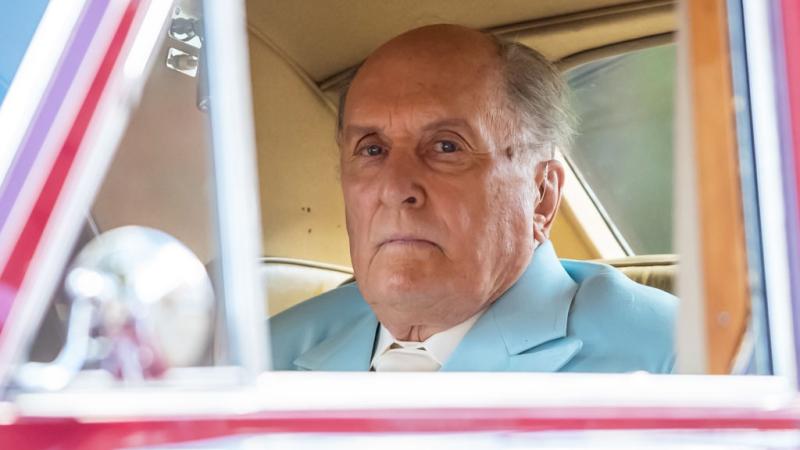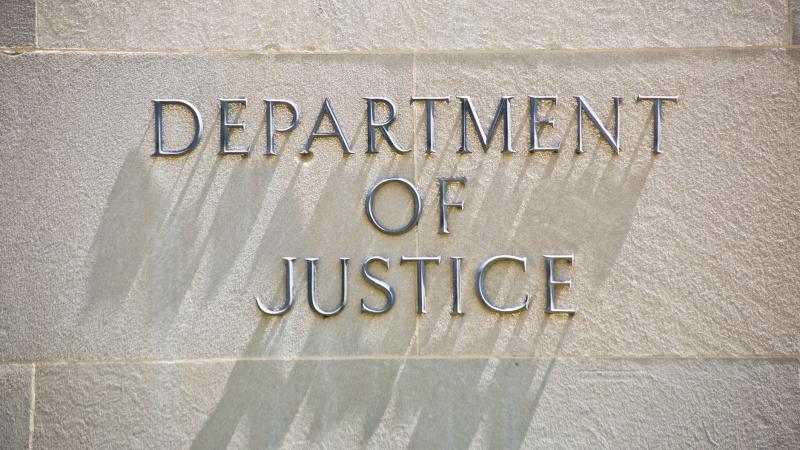Convention of States effort surges as Trump aims at shrinking size, scope of federal government
The Convention of States would allow states to propose constitutional amendments to limit federal power, potentially reshaping the balance of governance in the U.S.
The Convention of States (COS) Action hosted its annual national conference this weekend in Indianapolis, as calls to rein in expansive federal spending, term limits and the power of the federal government have not subsided, despite President Donald Trump's mandate to do so.
The Convention of States, driven by Citizens for Self-Governance, is a grassroots effort to utilize Article V of the U.S. Constitution to convene a limited state convention. It enables delegates to propose amendments targeting federal fiscal restraint, reduced government authority, and term limits for Congress and officials.
Meckler: "The future of the country is at stake"
To initiate the convention, 34 states (two-thirds) must pass resolutions. Any proposed amendments during the convention would require ratification by 38 states (three-fourths) to become law, which supporters claim is the stop-gap preventing what critics warn could devolve into a "runaway convention."
Nineteen states to date have passed the Convention of States Article V application, with an additional eight states granting passage in one chamber but not yet the other. All 50 states are actively considering the Convention of States Resolution.
Just The News spoke to Mark Meckler, president of COS, about the gravity of their efforts in 2025. "I think the future of the country is at stake. I don't think that's an overstatement. Elections are always critically important, and every election is the most important election of our lifetime. There's also a fundamental structural reform that has to take place at the level of the federal government that will never be done in Washington, DC."
The Article V convention process has never been utilized in U.S. history, with all 27 constitutional amendments originating from Congress. Supporters claim it enables states to curb federal overreach independently, while opponents warn that it might exceed its intended scope, despite protections like focused agendas and a separate ratification process.
Regardless of which party has power of the executive in the Oval Office, that party tends to suffer complacency in galvanizing supporters on even their most popular issues. When asked if this had been a problem for COS, Meckler said that while that premise was true for Trump's first term in office, it’s not the case now. “The reason is, people lived through four years of the Biden administration. They saw how he wiped out most of what President Trump did with the swipe of a pen and executive orders, and they're worried about that happening again."
To the contrary, he added. it has not had a "calming effect," rather, "I would say people are fired up because they see President Trump actually aggressively engaged in doing so much that they believe that we can do even more."
National debt, term limits could be affected
Supporters of COS who are clamoring about out-of-control spending may have a substantial case. The U.S. national debt in the year 2000, according to the U.S. Treasury, was $5.63 trillion. It is now $37.43 and counting. That's a 565% increase.
Another hallmark issue for COS is term limits for elected officials. The call for term limits in elected office stems from bipartisan concerns about entrenched power, career politicians, and declining public trust in government. Supporters of the idea argue that term limits would promote fresh perspectives and accountability, since the average length of service is now 10.1 years for the House (a little over five terms) and 12.7 years for the Senate (over two terms.)
De facto sinecures
The official website of the House of Representatives shows that since Congress convened in 1789, 33 members have served 40 years or longer in the House of Representatives. The Senate Press Gallery reports that some Senators, such as Chuck Grassley, R-Iowa, have served since 1981.
"We want to etch that in stone"
Those pushing back against term limits counter that it could disrupt experience, institutional knowledge, and crucial legislation, potentially empowering unelected influencers like lobbyists. However, according to Meckler, term limits decrease the influence of lobbyists because their power is based on relationships built over time and when there's a new batch of legislatures, the acquaintance process restarts. The resolution also calls for term limits on staffers and bureaucrats, reducing the influence of support staff lifers in the "deep state".
The COS process would take place autonomously and separate from both Congress and the White House. However, Meckler indicated that Trump can help send supporters their way.
While presidents such as Washington, Lincoln and Reagan had all supported the Article 5 mechanism, no president has thrown his imprimatur behind the effort. Trump could change that. "There's nobody more important and more appropriate to help lead the charge than President Trump," Meckler said.
If Trump does, says Meckler, "When we get to the Convention of States, we help to preserve the president's legacy. A prime example is doing away with the Department of Education, which would be reversed immediately as soon as there is a Democrat administration. We want to be able to write that into the Constitution, that the federal government may not be involved in education. When we do that, we preserve his legacy. He's the guy shutting down the Department of Education. We want to etch that in stone."














